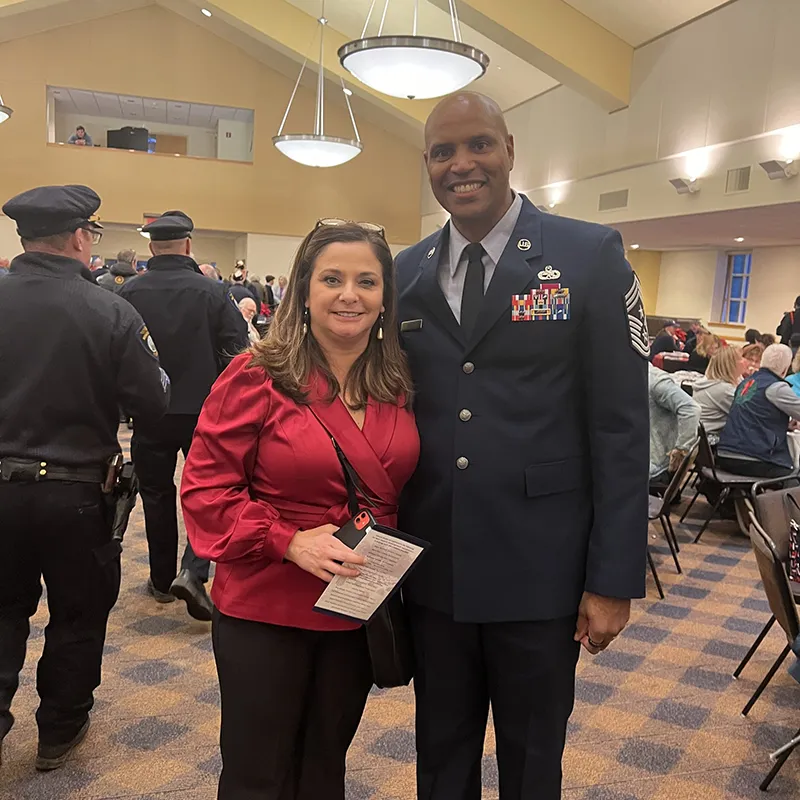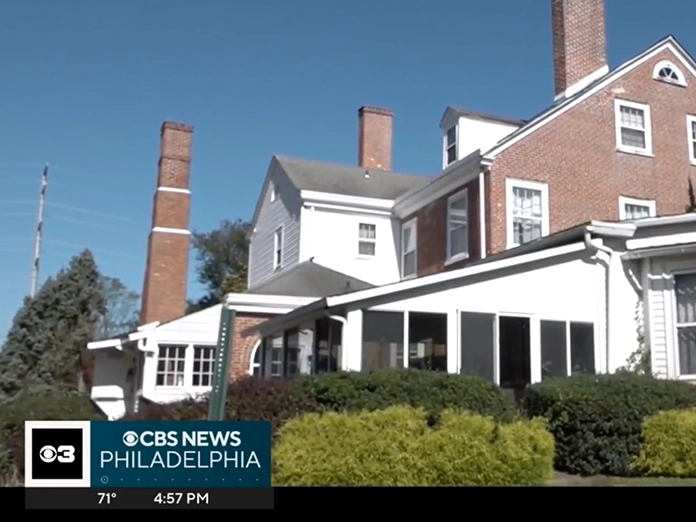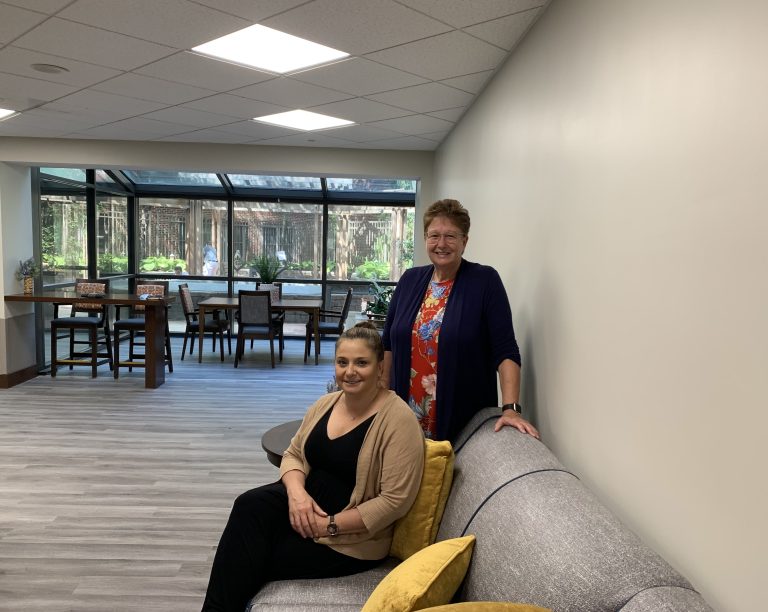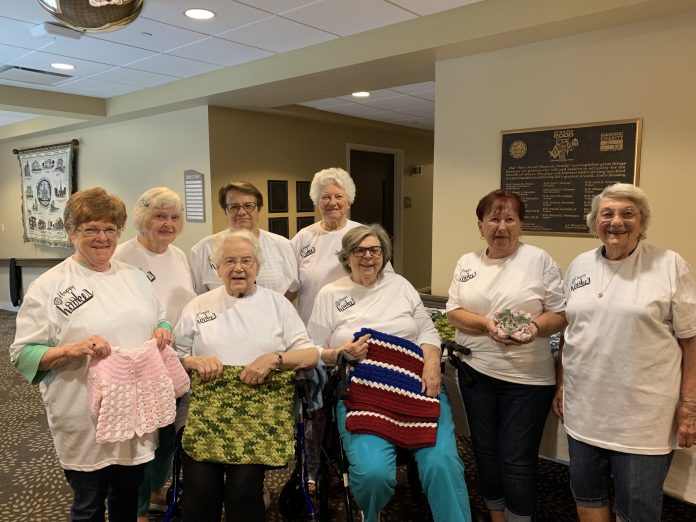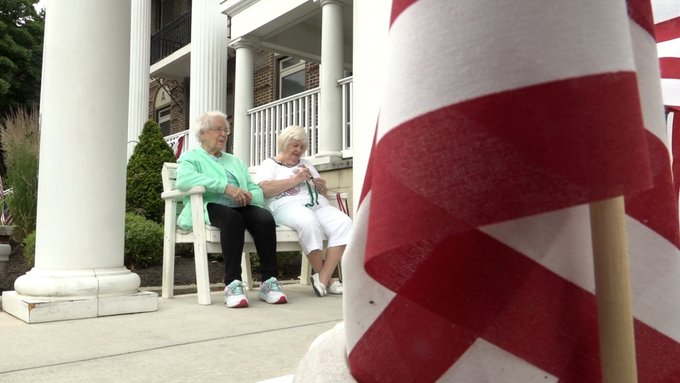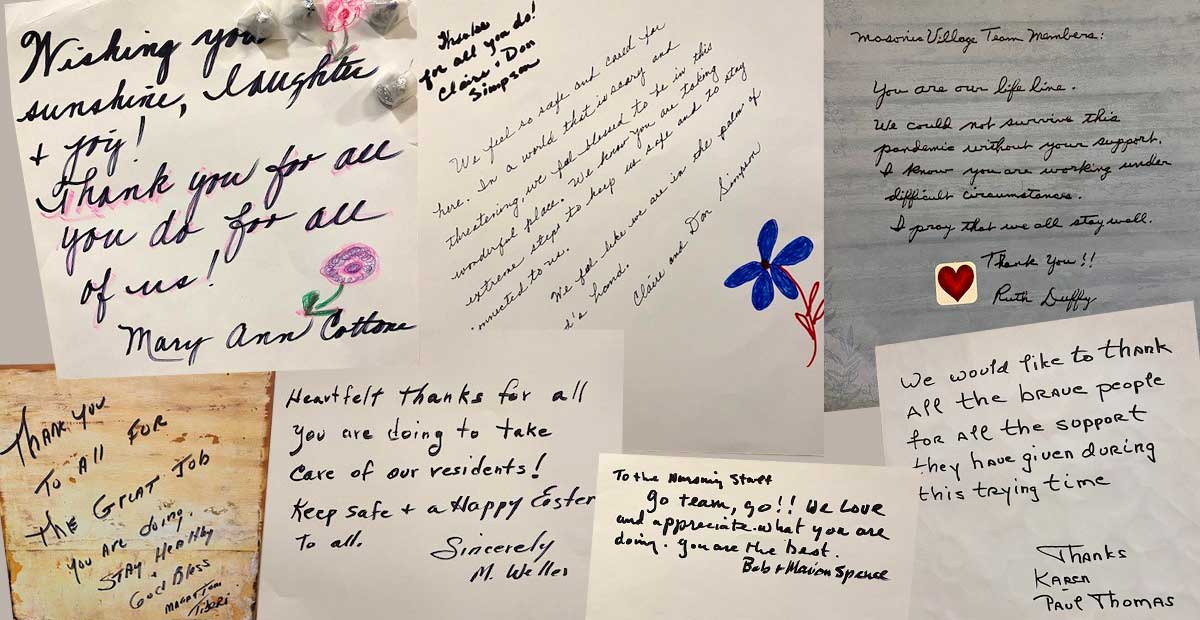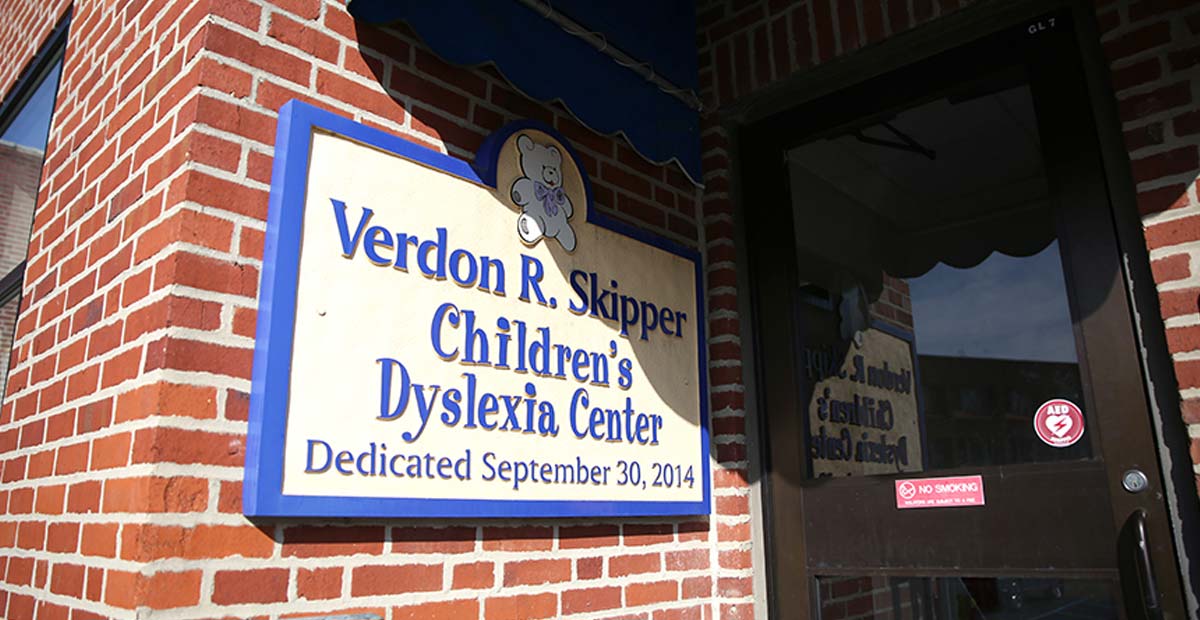Masonic Village Celebrates Milestone Birthdays – The Sun Newspapers
‘Remember, honor, teach’
Historic Burlington County house opens for tours for the first time – CBS Philadelphia (cbsnews.com)
The Sun Newspapers – Masonic Village at Burlington Opens Keystone Rehab Center
‘Building the bridge between two families’
Happy Hookers in Burlington County help military families in need
The Inside Scoop on COVID-19
Headlines about the effects of COVID-19 unfortunately don’t tell the whole story about what is happening on our campus at the Masonic Village at Burlington.
They don’t explain our early and consistent precautions to protect our residents and staff from contracting the virus: closing our campus to visitors, suspending non-essential services, postponing non-urgent medical appointments, stopping group activities, discouraging travel, implementing screening for staff, delivering meals to residents’ homes or rooms and making essential groceries available for residents on-campus to reduce their need to go to the grocery store.
They also don’t describe just how very contagious this virus is or the size of our campus compared to other retirement communities that are combatting it.
Here is what I witness every day:
- An incredibly dedicated staff who care so much about our residents that they have been working around the clock with commitment, compassion and flexibility, going above and beyond to make the best of this challenging situation.
- A team who has quickly adapted to new policies, procedures and practices to provide the best quality care and services to the residents they love.
- Creative advocates who are finding unique ways to provide safe recreational and spiritual services and alternate ways for residents to connect with their loved ones, even while they are missing time with their own families.
I am saddened that we have residents and staff who are suffering from this virus, yet I am proud of our combined efforts to defeat it. Dr. Guda, our Medical Director, is currently living on campus and is seeing patients as frequently as needed. Our nursing team monitors our skilled nursing and assisted living residents’ vital signs on every shift and assesses them for symptoms. Any symptoms are reported to the physician or nurse practitioner, and the resident is immediately placed on isolation. Our team members are screened daily prior to entering work for fever other symptoms. We are following all procedures recommended by the CDC and maintain contact with public health officials.
Our staff are motivated knowing their work is appreciated by residents and families.
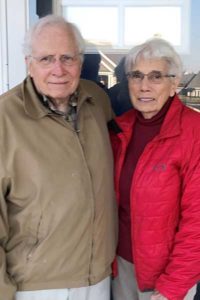
“We feel so safe and cared for here,” residents Claire and Don Simpson said. “In a world that is scary and threatening, we feel blessed to be in this wonderful place. We know you are taking extreme steps to keep us safe and to stay connected to us. We feel like we are in the palm of God’s hand.”
Masonic Village at Burlington has been named the Best of Burlington in several categories for many years in a row and was named to the lists of Best Nursing Homes and Best Short-term Rehab by U.S. News & World Report for 2019-2020. I believe our team continues to earn our reputation as a premier service provider during this national healthcare crisis.
Through it all, Masonic Village at Burlington remains a caring and loving place to call “home.”
Carl Tarbell is executive director of Masonic Village at Burlington.
Supporting Young Readers
Did you know that Masonic Village at Burlington has a Dyslexia Center on its campus?
For more than 20 years, the Children’s Dyslexia Centers Inc., a Scottish Rite charity, have been leaders in the effort to help children and their families overcome the painful obstacles of dyslexia, a neurological learning disability that makes it difficult for children and adults to read, write and spell.
There are more than 40 Dyslexia Centers in 13 states and five centers in New Jersey, including the Verdon R. Skipper Children’s Dyslexia Center at Burlington. The center tackles the challenge of dyslexia both by providing tutoring for children with dyslexia and by training a growing number of highly-skilled and dedicated tutors.
The center at Burlington serves children in grades 1-12 from many different educational backgrounds. On average, children admitted to the program attend for two years. The children receive one-on-one instruction twice a week after school.
“We both went through the teacher training program 20 years ago, and it’s truly life-changing, the rippling effect it has on getting the word out about dyslexia,” said Lisa Nappi, co-director of the center alongside Cheri Tartaglione.
Masons decided many years ago they wanted to support philanthropic endeavors, Cheri said. They got involved with training teachers and paired up with the Graduate Center for Dyslexia Studies at Fairleigh Dickinson University. Many of the teachers work in the classroom all day and then come to the center in the evening to tutor the children.
“Masons are making an incredible contribution to the dyslexia community, not just by tutoring children but by educating teachers,” Cheri said.
Masonic Village at Burlington resident Allan Hall volunteers at the center two nights a week, opening the doors for staff and parents.
“Because we have a locked door with a security release, Alan allows access and is there for parents to sign their children in,” Cheri said. “We enjoy seeing his smiling face.”
Dyslexia affects up to one out of every five people, boys and girls equally. Without proper intervention, dyslexia can lead to literacy, academic, social and self-esteem difficulties. While it is a treatable condition, millions of sufferers go without help due to lack of finances or access to services.
“One of the reasons that people seek out this program is because most schools don’t have the staff or the resources to provide the Orton-Gillingham method that teachers receive via Fairleigh Dickinson, Cheri said.
Orton-Gillingham is a teaching approach specifically designed to help struggling readers by explicitly teaching the connections between letters and sounds.
Parent Shannon Tucker had two children in the dyslexia program, a son and a daughter. Her daughter completed the program and her son is currently in his first year. “I think the program is wonderful,” she said. “My son’s teacher totally knew how to get on his level and make learning fun for him. I’ve seen both my son and daughter make a lot of progress and grow.”
On Feb. 23, the Verdon R. Skipper Children’s Dyslexia Center will host its major fundraiser. For more information on how to give or how to volunteer, visit www.skipperlearningcenter.org.
Providing the Best and Safest Care
Masonic Village at Burlington is proud to be a restraint and alarm-free community, as part of our mission to provide personalized, compassionate care and to promote the highest quality of life for our residents.
We do not utilize bed or chair alarms, or restraints such as vests, lap trays or bed side rails for residents at risk of falling, as they can actually be detrimental to our residents’ quality of life.
About 1,800 older adults living in long-term care facilities die each year from fall-related injuries, according to the Centers for Disease Control and Prevention (CDC). Years ago, there was a common misconception that restraints improved the safety of frail older adults. However, research shows restraints can be dangerous and often entail more risks than benefits.
Limiting a patient’s freedom to move around leads to muscle weakness and reduces physical function, thereby increasing the risk of falls. Many studies document the dangers of restraints and recommend more dignified methods to improve residents’ safety.
“We have two small enabler rails on the beds that people can use to grasp ahold of to pull themselves up or turn over, but we do not use full side rails or four-quarter side rails,” said Cindy Shemansky, assistant executive director/administrator at Masonic Village at Burlington. “People can seriously injure themselves when trying to get up through or around a side rail.”
The use of bed and chair alarms proliferated in the 1990s, when physical restraints were banned at nursing facilities nationwide. The alarms were intended to go off when a resident’s weight shifted, indicating they might be at risk for falling. But research shows alarms have a negative effect on the resident’s quality of life. They interrupt sleep and can cause agitation and restlessness.
“When we were using alarms, any tiny movement a person made, the alarm would go off,” Cindy said. “You have all this noise. It was annoying to the resident as the alarm would stay on until a team member responded. It also immobilized residents because they were afraid of moving as it would set off their alarm.”
Both alarms and restraints were phased out in 2016 as part of a nationwide movement in favor of more proactive, attentive care. Research today shows a reduction in falls at multiple long-term care communities that discontinued the use of the alarms. Instead, they tailored fall prevention for individuals by, for example, altering bathroom schedules, room re-arrangements and other measures, according to the CDC.
If your loved one is assessed to be at risk for falls, Masonic Village at Burlington will create an individualized plan of care with interventions aimed at helping reduce falls and injuries and provide peace of mind to residents and their families.



